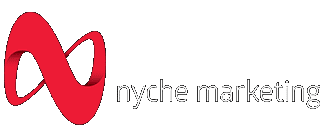What is SEO?
If you are doing any kind of research on internet marketing and how it can help your business become visible online, you have probably stumbled across the acronym SEO, which is short for Search Engine Optimization. Basically, SEO is the method of increasing the chances that your website and its pages will be found on the first page of search engines (like Google, Bing, Yahoo, YouTube, iTunes, etc) when someone does a search for your product and services.
Times have really changed when it comes to shopping for products and services in Canada. Millennials especially like to do some online research, read reviews, and visit your website before heading into your physical office or store to buy something.
Let’s take Edmonton restaurants as an example: there are roughly 4400 searches done monthly for the keyword Edmonton restaurants. That’s a heck of a lot of traffic that, unless you are on the first three pages of a search, are probably not coming to your door.
There is a major caveat when it comes to SEO – if you want to show up in a search for a 1 word or 2 word keyword like: Edmonton -or- restaurants Edmonton -or- contractor Edmonton, it will take much work and a sizeable budget (months to years and tens of thousands of dollars). The competition will be fierce and likely national or international company websites will already be on top for these coveted keywords.
The good news is that there are ways around getting to the first page of search results for local businesses. We can utilize long tail keywords (more specific keywords, typically 4 or more words) to ensure that you can show up on the first page locally (example: basement renovation company Edmonton).
These keywords are often much better at converting a visitor into a lead as their search intent is more specific and targeted to a service.
SEO is aimed at getting unpaid (or organic) search engine traffic to your website, unlike Pay-Per-Click (PPC) which directs paid traffic to your website.
Check out this informative explainer video from Search Engine Land explaining Search Engine Optimization (SEO)
Why do you need SEO?
You need SEO for your business website because the phone book is no longer the go-to business directory that people turn to when they are looking for your product and services. People now turn to the Internet first, and generally, they visit a search engine like Google to search and find the answers to their queries.
Although directory books like the Yellow Pages were good in their day, imagine having to call 20 clinics to find the right doctor, whereas now you can go to 20 websites, read reviews, get your answers, and make a shortlist decision about which clinic you’d like to visit.
27.4 million Canadians are online and 93% of them look for a product or service online before buying. They perform a search using Google, Yahoo, or the Bing search engines in an effort to find what they are looking for.
Here are some examples of searches done throughout Canada every month:
- Over 110,000+ searches are done every month for keywords related to chiropractor,
- Over 94,000+ searches are done every month for keywords related to dentist
- Over 74, 000+ searches are done every month for keywords related to plumber
- Over 70,000+ searches are done every month for a roofer
- Over 100,000+ searches are done every month for keywords related to home renovator
*Monthly number of searches found using Google keyword tool.
How do you do SEO?
At Nyche Marketing, we break SEO into 4 distinct parts: technical seo, on-page seo, off-page seo, and local seo.
Before we break those down, first things first. In real estate, they have a core saying that is: location, location, location. In SEO, the primary foundation is: keywords, keywords, keywords.
This means that you must have a list of keywords that you want to optimize your website for. This is not something you guess at or assume. There are specialized tools out there that will allow you to KNOW exactly what words and phrases real people are using every day to search for your product and services. Having this list will dictate how we would go about implementing the following SEO tactics.
Technical SEO
This is the optimization done via the software architecture of the website. From choosing the right website CMS software to go with, to the technical files of the site like the robots.txt and sitemap.xml files, to understanding how to mark a web page as the master version (canonical version), to adding metadata to page content, and finally, making sure the page URLs are search engine friendly. Page speed, broken links and 404 pages, 301 redirects and so much more – technical SEO is just as it sounds, highly technical, and is best left to programmers or site architects to design and implement.
For a better idea of how intensive it can be, check out this article and this one.
On-page SEO
On-page SEO refers to the optimization done to the content on the web page itself. This encompasses everything from using relevant keywords in the headings, page content, image tags, title and description tags, and hyperlinks.
Off-page SEO
This is where the rubber meets the road. Now that you have a firm technical website foundation and you have published some great optimized content, you need to let the search engines know you are a viable site. It needs to know that other websites think your content is credible. Getting backlinks and having your web pages shared on social media sites tells Google that real people vouch for your web page and it increases the authority of your web page. The more authority, the better chance you have of coming out on top in a search engine results page.
Local SEO
Local SEO is a mixture of on and off page that focuses primarily on getting your name out there to your local community sites. Building citations using your NAP (name, address & phone number) is key to ranking locally. This lets search engines like Google know you are local and relevant, and helps increase your chances for results in a regular search or a map search.
Here is our typical process for beginning an SEO strategy:
- Start with some seed keywords relevant to your business (we will typically ask you what you want to be found/rank for) and begin searching to see what comes up and where you rank. A good sign that you need help with SEO is if you do not show up on the first three pages of a search for keywords relevant to your business.
- Collect the top 3 website results for each keyword.
- Do proper keyword research to find out the exact keywords that people are actually searching for (there will be hundred if not thousands); and then determine their viability to be used on your website.
- Filter the results down to between 50 and 100 keywords that show buying intent. These will be the keywords and keyword themes we will focus on. The list will include phrases and long tail keywords.
- Incorporate keywords into strategic locations on your website like your URLs, titles, headings, image alt tags, and page content etc. This is the On-Page SEO and Technical SEO tactics.
- Next we would map out a strategy for executing monthly off-page seo and local seo.
While this list is short, it is only a brief overview of what it takes to apply just one SEO tactic. Nevertheless, the foundational key to SEO will always be: decide what keywords you want to target and be found for, and start integrating them into your strategy.
How does Search Work at Google?
Matt Cutts, the previous head of Google’s web spam team, describes how a search is done using the Google search engine. He also talks about how Google determines how to rank a website on a search engine results page, check it out below:
What if your website sent you pre-qualified leads every week?
Just like running television commercials, radio commercials, or billboards allowed you to get your name out there in the past, optimizing your website gives you just as much chance to get your name out there and comes with the added benefit of being able to actually do some of the selling for you, depending on how well your web page can convert a visitor to a lead or customer.
Imagine that you are a doctor running a medical clinic and you have some deep experience with a specific modality or two. How are people supposed to know you have such a skill set if your website doesn’t tell them? How can your site attract patients that are actively looking for a solution to their pain, disease, or injury? Optimizing your site and adding relevant content such as case studies, patient stories, published articles, patient testimonials, and general information can go a long way in improving your website’s capability to be found on the top page of a search engine.
With a good SEO strategy, it is possible to see leads contacting your business from your website every week.
Now imagine an Edmonton business getting 5000 visitors every month to their website from all over North America. We’ve done it with a client of ours who started out with a basic 5 page website, and eventually moved forward with incorporating an SEO strategy as well as a content marketing strategy, and now the business receives pre-qualified leads every week.
Do you want leads and customers from your website? Do you want more visibility online? SEO combined with a content marketing strategy is the way to go!
Some SEO Statistics
With the ever-changing landscape of the online world, it can be difficult to stand out. A good SEO strategy is a great way to capitalize on the many searches done every day for your product or service using keywords.
Here are some other interesting statistics about SEO:
- 4.8 billion Canadian Google searches are performed each month
- 16% of daily searches have never been searched before
- 60% of all organic clicks go to the top 3 search results
- 70-80% of users ignore the paid ads, and only focus on the organic (SEO) results
- Inbound SEO leads have a 14.6% close rate, while outbound leads (such as direct mail or print advertising) have a 1.7% close rate
Sources:
6smarketing.com/blog/infographic-canadian-internet-usage-statistics
ironpaper.com/webintel/articles/2015-critical-seo-statistics-and-trends/#.VoxoyRG3Pww
Trackbacks & Pingbacks
-
[…] What is SEO? […]
Leave a Reply
Want to join the discussion?Feel free to contribute!





Thank you so much for sharing helpful information
Good work man!!!!!!!!! Indeed a great post about Seo.A lot of Great Tips and Very nicely written .we have learned a very powerful tips from your site.
Thank You .